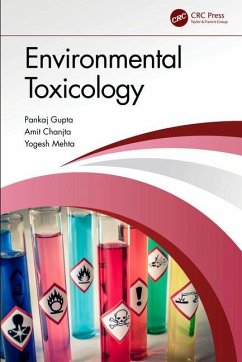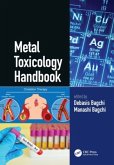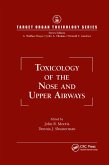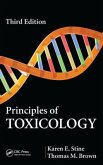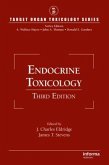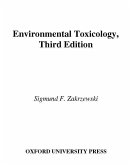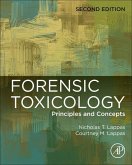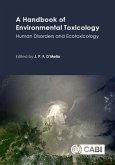Eco-toxicology, an offshoot of toxicology, is a multidisciplinary science that integrates toxicology and ecology by drawing knowledge and procedures from both fields. It analyses the effects of toxic chemicals or biological agents on living organisms at different levels of organization. Eco-toxicology classifies different contaminants, their characteristics, release and ecological fate, and predicts their effects so that timely action can be taken to prevent or minimize any detrimental effects.
Environmental Toxicology starts with the basics of toxicology, briefly touching on the sources of toxic compounds, classification of toxicants, and factors affecting toxicity, and then elaborates on heavy metal toxicity. The individual chapters on various heavy metals and radioactive metals discuss the sources and routes of exposure, aetiology, pathophysiology, clinical manifestations, and mechanisms of toxicity, toxicological effects, diagnosis, treatment, management, and ecological impact. The book covers the field in its greatest width and provides an insight into pesticide and radiation toxicity, and recent advances in eco-toxicology, with special focus on the removal of HMs and the latest bioremediation techniques.
This book serves as a reference work for advanced students pursuing degrees in environmental toxicology and across various disciplines, such as biomedical and environmental sciences, toxicology, eco-toxicology, pharmacology, public health, etc. and all interested in learning the concepts of eco-toxicology.
Features:
A systematic overview of the key concepts of eco-toxicology, its relationship with other disciplines, and recent advances in the area
Detailed classification of toxicants, types of toxicity, and mechanism of the action of toxicants
An in-depth coverage of topics on the mechanism toxicity of HMs, in addition to exclusive sections on pesticide and radiation toxicity
A fact file in each chapter, highlighting its key points
Flow charts, tables, diagrams, and illustrations in easily understandable language
Environmental Toxicology starts with the basics of toxicology, briefly touching on the sources of toxic compounds, classification of toxicants, and factors affecting toxicity, and then elaborates on heavy metal toxicity. The individual chapters on various heavy metals and radioactive metals discuss the sources and routes of exposure, aetiology, pathophysiology, clinical manifestations, and mechanisms of toxicity, toxicological effects, diagnosis, treatment, management, and ecological impact. The book covers the field in its greatest width and provides an insight into pesticide and radiation toxicity, and recent advances in eco-toxicology, with special focus on the removal of HMs and the latest bioremediation techniques.
This book serves as a reference work for advanced students pursuing degrees in environmental toxicology and across various disciplines, such as biomedical and environmental sciences, toxicology, eco-toxicology, pharmacology, public health, etc. and all interested in learning the concepts of eco-toxicology.
Features:
A systematic overview of the key concepts of eco-toxicology, its relationship with other disciplines, and recent advances in the area
Detailed classification of toxicants, types of toxicity, and mechanism of the action of toxicants
An in-depth coverage of topics on the mechanism toxicity of HMs, in addition to exclusive sections on pesticide and radiation toxicity
A fact file in each chapter, highlighting its key points
Flow charts, tables, diagrams, and illustrations in easily understandable language

